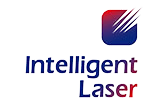In the world of automation and robotics, laser vision sensors play a crucial role in providing accurate and precise measurements for various applications. These advanced sensors use a combination of laser technology and vision recognition to detect, measure, and analyze objects in their field of view. In this blog, we will delve deeper into the principles of operation behind laser vision sensors and how they work to improve efficiency and productivity in industrial settings.
What is a Laser Vision Sensor?
A laser vision sensor is a sophisticated device that combines the capabilities of laser measurement and vision recognition to detect and analyze objects. These sensors emit a laser beam onto the target object and use a camera to capture the reflections and create a 3D image of the object. This information is then processed by software algorithms to provide accurate measurements of the object's dimensions, position, and orientation.
The Working Principle of Laser Vision Sensors
The key principle behind the operation of the laser vision sensor is triangulation. This technique involves measuring the angles and distances between the laser emitter, the object, and the camera to calculate the object's dimensions and position. By analyzing the reflected laser beam and comparing it with the known characteristics of the laser emitter, the sensor can accurately determine the object's size, shape, and location in real-time.
Applications of Laser Vision Sensors
Laser vision sensors have found wide-ranging applications in industries such as automotive, aerospace, electronics, and manufacturing. These sensors with arc tracking system are used for tasks such as quality control, inspection, alignment, sorting, and tracking. In the automotive industry, automatic weld seam tracking sensors are used for measuring the dimensions of car parts and ensuring precision in assembly processes. In manufacturing, these sensors are employed for inspecting products for defects, verifying dimensions, and guiding robots in pick-and-place operations.
There are several advantages to using laser vision sensors in industrial applications. These sensors with metal tracking system offer high accuracy and precision in measurements, allowing for improved quality control and reduced waste. They are also fast and efficient, providing real-time feedback and enabling quick decision-making in production processes. Laser vision sensors are versatile and can be easily integrated into existing systems, making them a cost-effective solution for a wide range of applications.
In conclusion, laser vision sensors are an essential component in modern automation and robotics systems, providing accurate and reliable measurements for various industrial applications. By understanding the principles of operation behind these sensors, manufacturers can optimize their processes, improve quality control, and enhance productivity. With their advanced technology and versatile capabilities, laser vision sensors are shaping the future of industrial automation and revolutionizing the way we perceive and interact with our environment.
